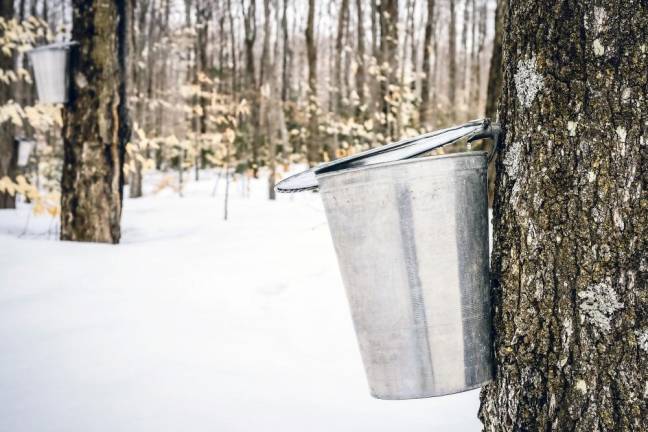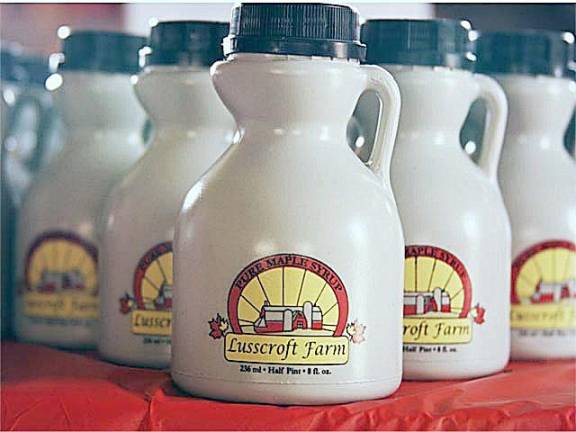From tree to table: See how maple syrup is made
Bushkill. Millbrook Village and Lusscroft Farm in the Delaware Water Gap National Recreation Area will hold demonstrations in March.


How does maple syrup get on your pancakes? It all starts in March, when the tree sap starts to rise.
Celebrate spring in the Delaware Water Gap National Recreation Area as park rangers and volunteers demonstrate the North American tradition of maple sugaring. Two demonstrations are planned: at Millbrook Village on March 14, and Lusscroft Farm on March 21 and 22.
American Indians, early settlers, and their descendants all looked forward to collecting and boiling the sap of locally abundant sugar maple trees.
Visitors will be able to see and participate in the “sugaring” process, from tree to the table. Watch ongoing demonstrations on how to tap maple trees, collect the sap, and boil the sap down in cast iron kettles over an open fire to create maple syrup. Woodstove and outdoor cooking demonstrations will showcase the use of maple products in recipes common during the 1800s.
At Lusscroft Farm, fresh maple syrup will be available for purchase. Funds raised will support the maple sugaring project at the historic farm.
The Lusscroft Farm demonstration is presented by The Heritage and Agriculture Association in cooperation with the New Jersey Tree Farm Program, the New Jersey Society of American Foresters, and the New Jersey Department of Environmental Protection's Division of Parks and Forestry. The Millbrook Village demonstration is presented by the National Park Service and the Millbrook Village Society.